I didn’t go into this expecting to defend Manfred Mann. I really thought I was going to be in another Dave Clark Five situation, a band that I once really appreciated that now I just don’t care about, a band with a lot of good material but that just never matured into anything beyond 1964 style British pop. But it turned out my memory was faulty, and perhaps I should have been listening to a little bit of Manfred Mann all along.
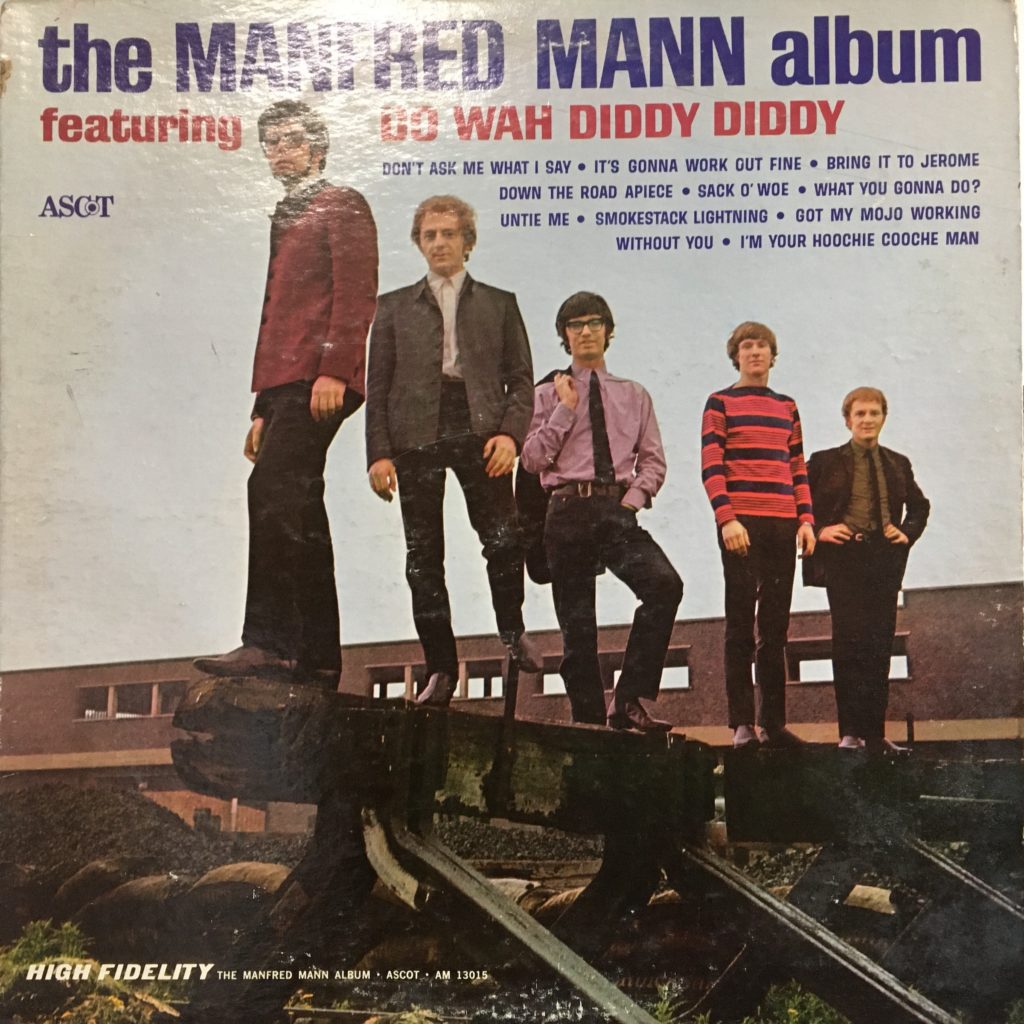
We’ll start with this: my first exposure to Manfred Mann was when the version of them known as Manfred Mann’s Earth Band had a No. 1 hit with Springsteen’s “Blinded By the Light” in early 1977. That was on an album called “The Roaring Silence,” a prog rock plodder that I got along with a pile of other junk the DJs didn’t want in return for doing some sort of work for radio station WWWD (better known as 3WD) in Schenectady. There’s an 8-minute song on it called “Singing the Dolphin Through,” and the whole thing is just twee nonsense that I got rid of as unlistenable decades ago.
Now, that was a very different approach than the earlier Manfred Mann (and there was an art jazz phase in between). which was a standard British blues band that formed around 1962 that took the (made-up) name of their keyboard player. They had a monster smash with Jeff Barry and Ellie Greenwich’s “Do Wah Diddy Diddy,” and for most people that’s the beginning and the end of Manfred Mann knowledge. And I’ll admit that being subjected to “Do Wah Diddy Diddy” for the past 60 years has colored my impression of the band, when in fact it’s not like anything else they were doing.
This was their debut American album from 1964, pretty close in content to their British debut, “The Five Faces of Manfred Mann” and relistening to it after decades of leaving it on the shelf, it’s right up there with The Yardbirds and others for smokin’ interpretations of the blues. There’s some Cannonball Adderly, Howlin’ Wolf, Willie Dixon, and Muddy Waters (all credited), along with a light touch on “It’s Gonna Work Out Fine.” It’s more genuinely bluesy than a lot of the British Invasion stuff that made American releases, and probably sold entirely on that one hit. (It hit #3 in the UK, but only #35 in the US.)
I hadn’t spun this disc since the ’80s, probably the early ’80s at that, because in my mind I had put them in the category of somewhat standard British blues that wasn’t very interesting. It turns out these are really pretty great renditions and this band really did get the blues.
I bought this early on in my British invasion phase, so most likely 1979 or 1980, and almost certainly at Desert Shore Records in Syracuse. Though the cover’s a little rough, it sounds terrific and once again I have put less wear on an album cover in 40 years than the previous owners did in 20. It’s amazing to me to think that when I was first listening to it, in The Embassy or 163B Marshall Street, the record was only 15 years old, because even then it sounded a world away. Just so much had changed musically in those 15 years. (I wanted to make a comparison to the big songs of 2007, but I just looked at the Billboard Hot 100 for that year and recognized essentially nothing – so I can’t say if it’s dated or not. The only song I knew was Amy Winehouse’s “Rehab” – and I don’t think that sounds a world away. )
Anyway, listening to this now, I think: pretty good. Deserves far more listens than it’s gotten.
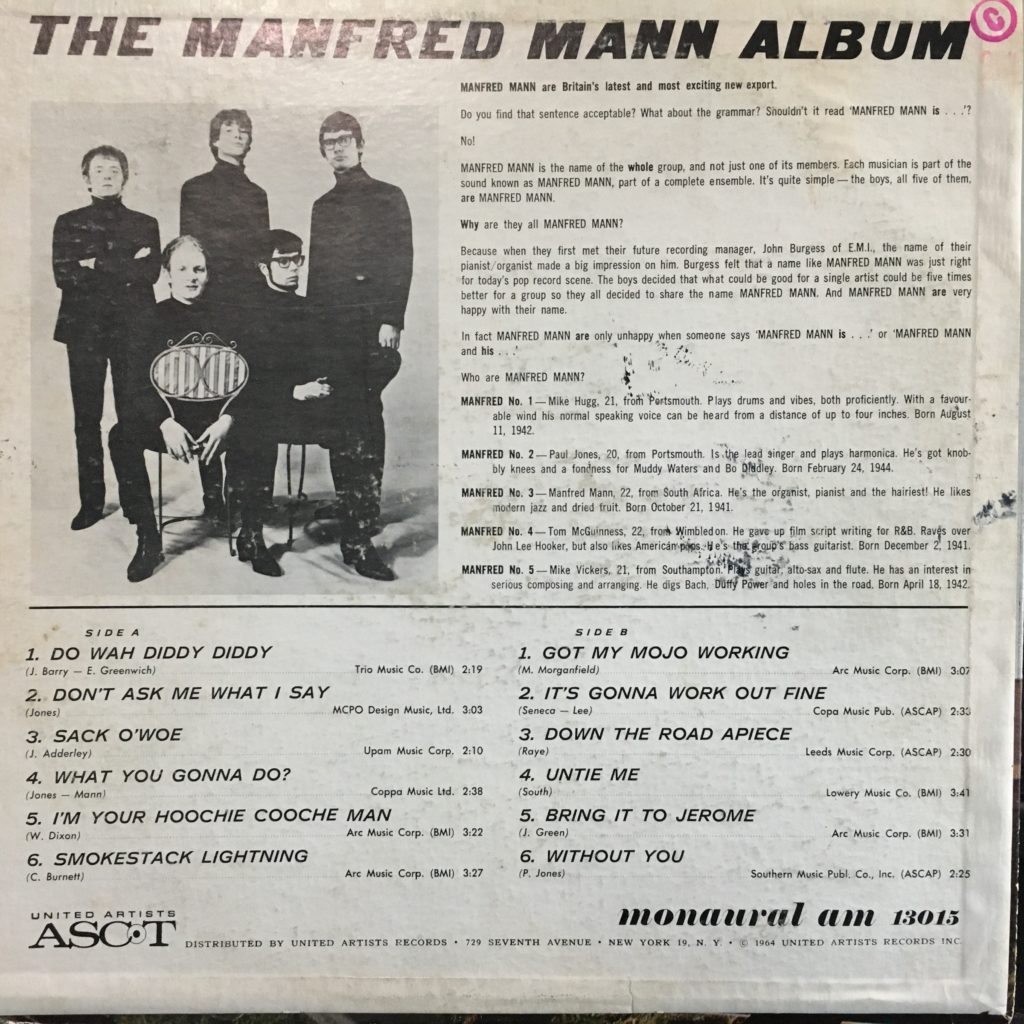
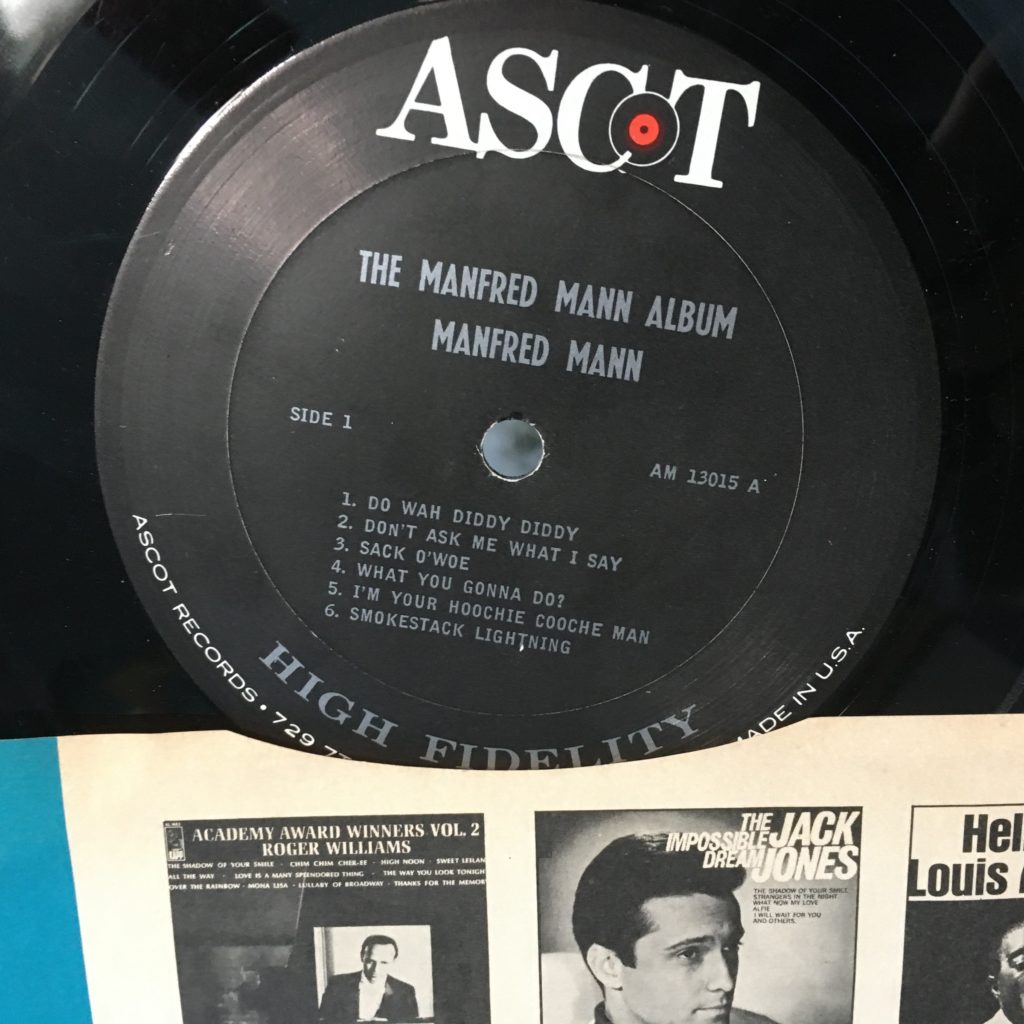
This was released on Ascot Records, but for whatever reason my copy is in a Kapp Records promotional sleeve. I have a distaste for Kapp based on some childhood memories of extreme lameness, and this sleeve doesn’t change that impression.
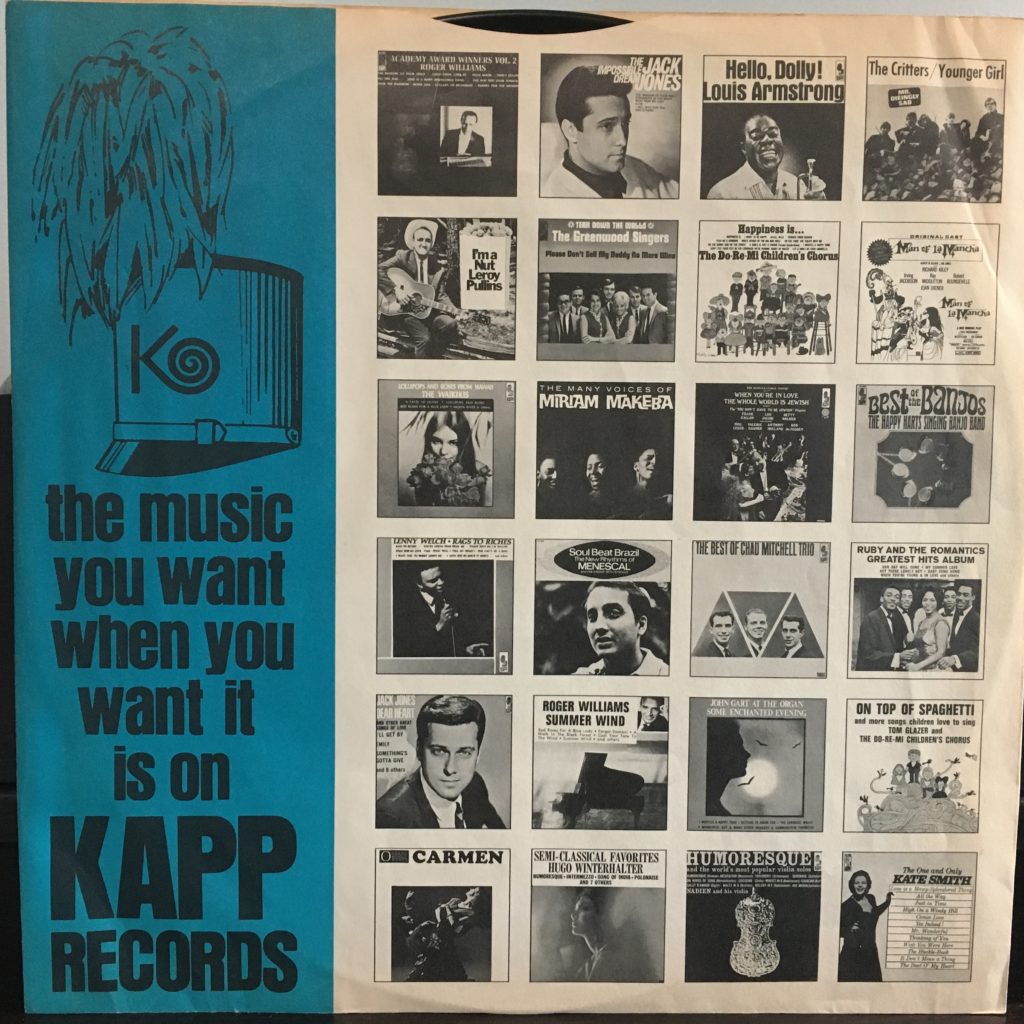
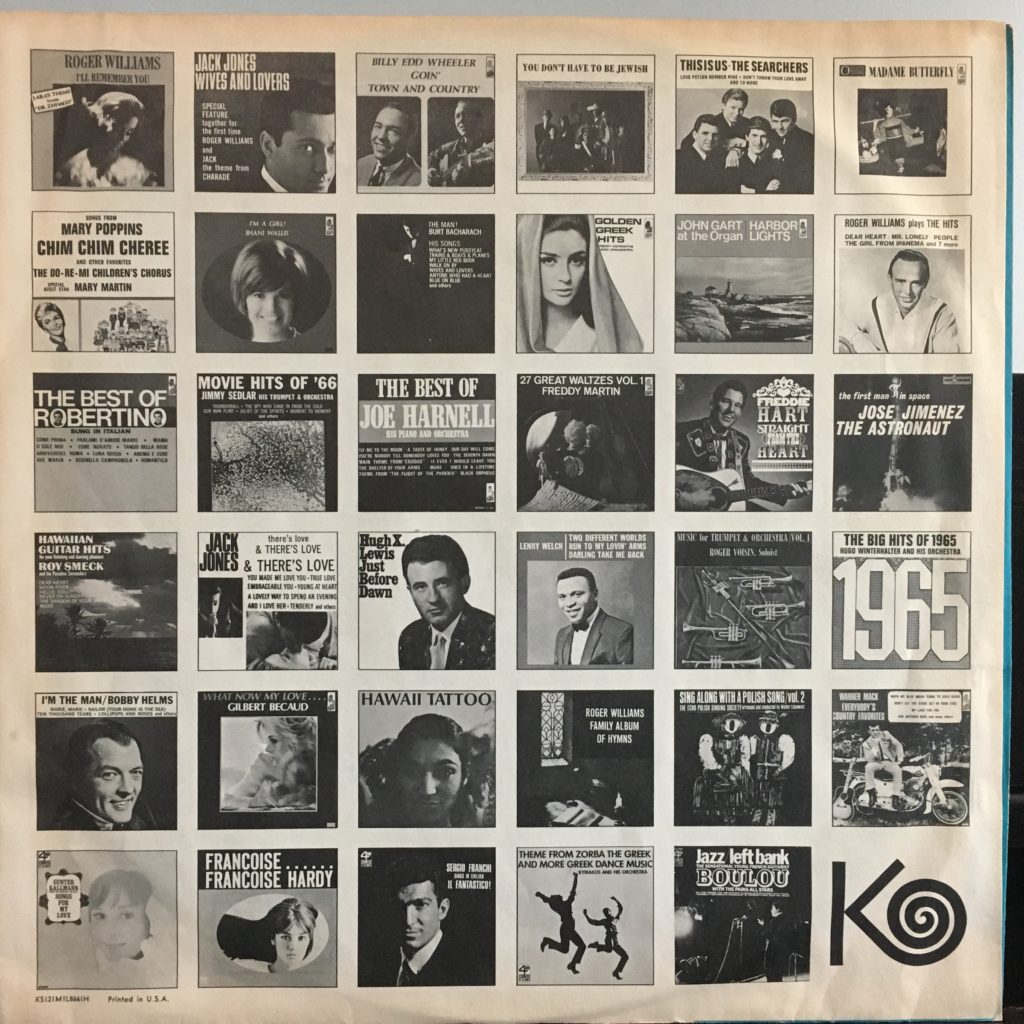
I got very curious in particular regard to one promo on this sleeve, that of Hugo Winterhalter and His Orchestra and their album, “The Big Hits of 1965.” I really had to wonder just what a super-establishment easy listening outfit like this would be putting out as the big hits of a year when the British Invasion had completely overwhelmed popular music. Would they have acknowledged The Beatles or The Rolling Stones? Surely not. Now, I can’t say there were no popular songs on this compilation – it covered Petula Clark’s “Downtown,” the “Goldfinger” theme, and it had “King of the Road” and an Elvis song I have no memory of, all of which were to be found on Billboard’s year-end chart. But it leads off with “Chim Chim Cher-ee” and “Red Roses For a Blue Lady,” something called “Dream On Little Dreamer” and an obscure Sinatra song, all of which were kryptonite to the hip youth of 1965. This all sounds like an elevator nightmare.
